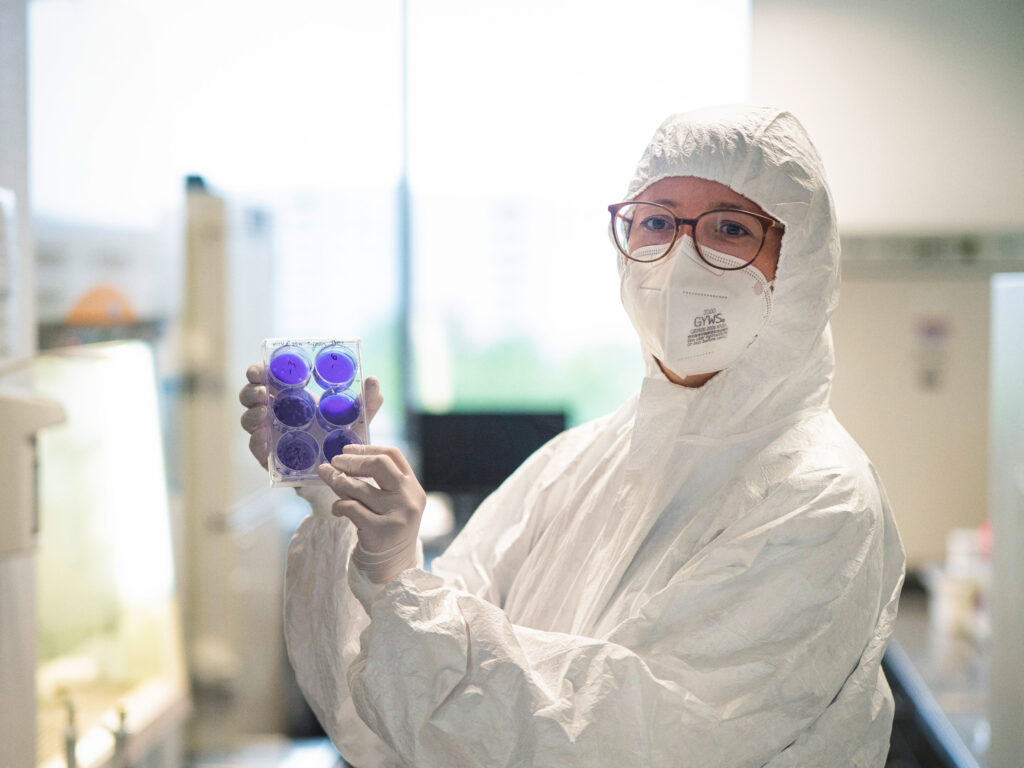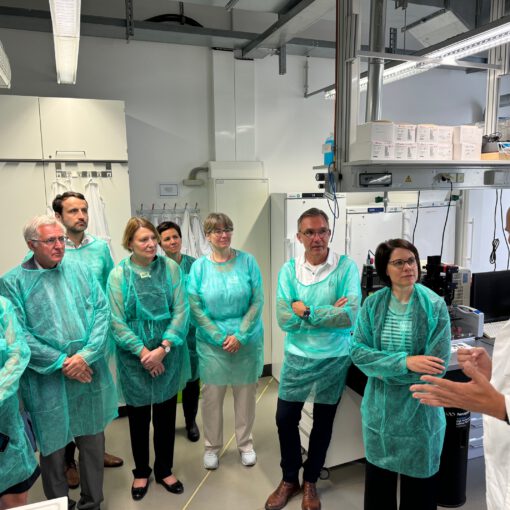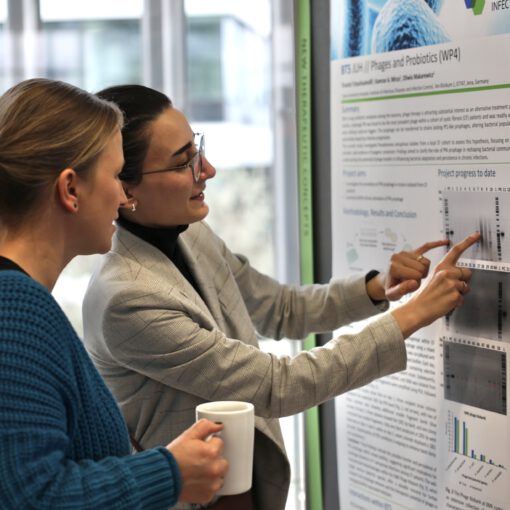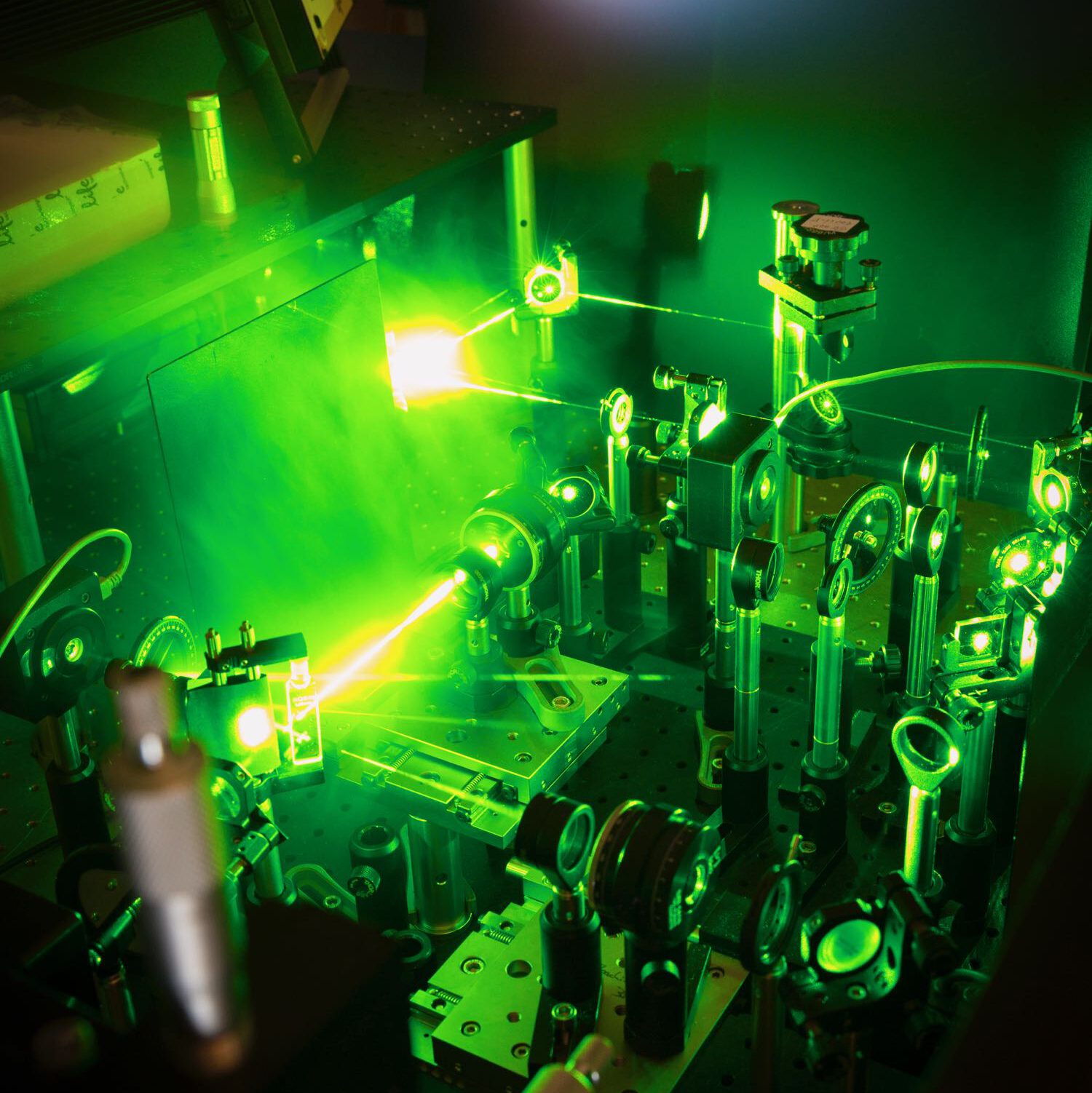Jena University Hospital is coordinating a collaborative project that is now starting to accelerate the diagnosis of viral respiratory infections. The research project will use COVID-19 to develop methods and technologies that can detect viral outbreaks earlier and support their containment to be better prepared for future epidemics.
Jena (vdG/UKJ). Their rapid variability and ease of transmission, especially in our globalized world, make them so dangerous: viruses that infect the respiratory tract. In the last twenty years alone, influenza variants in the form of swine and bird flu have claimed thousands of lives. Coronaviruses have spawned three new disease entities, SARS, MERS and COVID-19, the latter with unprecedented impact on daily life and the global economy. In the research alliance “SARSCoV2Dx”, the University Hospital Jena, UKJ, the Jena Leibniz Institutes for Natural Product Research and Infection Biology, Leibniz-HKI, and for Photonic Technologies, Leibniz-IPHT, and the Friedrich Schiller University Jena want to use the COVID-19 disease to develop methods and technologies that can detect viral outbreaks earlier and support their containment.

“We will work in the field of viral diagnostics, further investigate the response of the infected body to the pathogens, and search for new agents and approaches for the therapy of COVID-19,” says Dr. Stefanie Deinhardt-Emmer, summarizing the research program. The physician coordinates the collaborative project and works at the Institute of Medical Microbiology of the UKJ, which is primarily involved in the development of standardized sample preparation, robust molecular and biochemical analytics for virus particles, and the establishment of biological model systems for virus infections.
These test systems also serve to develop new diagnostic methods based on spectroscopic techniques. Stefanie Deinhardt-Emmer: “We don’t want to stop at cell culture or proof-of-concept, but rather test new methods against current diagnostic standards and establish them in clinical routine.” In the medium term, the new methods should not only be able to detect viral pathogens more quickly, but also patient characteristics that provide information about the course of the disease. The research teams are looking for such characteristics when analyzing the immune response to viral infection, and for new approaches to targeted antiviral agents and therapies. In addition to an extensive data management project, the collaborative research program also includes the area of public health and pandemic management, which addresses the societal dimension of the epidemic, from prevention to containment measures and social consequences.
The findings, methods and technologies generated by the “SARSCoV2Dx” research collaborative will first further decipher the infection and disease mechanisms of COVID-19, detect SARS-CoV-2 more rapidly in patient samples and identify new therapeutic approaches against COVID-19. The collaborative team will bring the established technologies to the Leibniz Center for Photonics in Infection Research, LPI, which is currently being established, to further utilize and adapt them to better prepare for future pandemics.
Prof. Dr. Thomas Kamradt, Scientific Director of the UKJ, emphasizes: “The network will benefit from our many years of experience in the Jena network of sepsis and infection research and our current experience during the pandemic. Thus, we will contribute to the management of the COVID-19 pandemic and future epidemics.” The German Federal Ministry of Education and Research BMBF is funding the five-year collaborative project as part of its “Photonics Research Germany” program with a total of twelve million euros.




